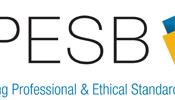ABSTRACT
This paper examines the four philosophical viewpoints that underpin an understanding of what constitutes ethical behaviour. It then covers the methods that an organisation can use to promote and maintain high ethical standards within a business environment.
Ethics can be seen as a set of principles that govern what is considered 'right' and 'wrong' in regards to ones conduct (Schermerhorn et al, 2004.) Therefore ethical behaviour is that which is considered 'right' in a moral sense. There are four philosophical viewpoints that underpin an interpretation of ethics and ethical behaviour.
The utilitarian view was formulated in 1781 by Jeremy Bentham, and later elaborated on by the philosopher John Stuart Mill (Wikipedia, 2005.) It's a principle that bases the 'rightness' of an action on the value (or utility) of its consequences; and is commonly viewed as the greatest good for the greatest number. The value of an action is positive if the action increases the total 'happiness' in the world (Wikipedia, 2005.)
In a business context, profits, efficiency and other performance criteria can be used to determine what is best for the majority of people. However, based on a utilitarian view of ethics alone, problems could arise when the pursuit of happiness for the majority results in unfair hardship or unhappiness for the minority. Using happiness alone as a judge, ignores certain other determinates of ethical behaviour such as the social acceptability of an action. In the past, certain types of pollution would have been tolerated as doing so would have positively affected more people than negatively; whereas increased education and public awareness now deems much pollution unacceptable and inappropriate management of such as unethical.
The individualism perspective of ethical behaviour is based upon the view that behaviour which advances long-term self interests is ethical (Schermerhorn et al, 2004.)...



NAsh...
excellent
0 out of 0 people found this comment useful.